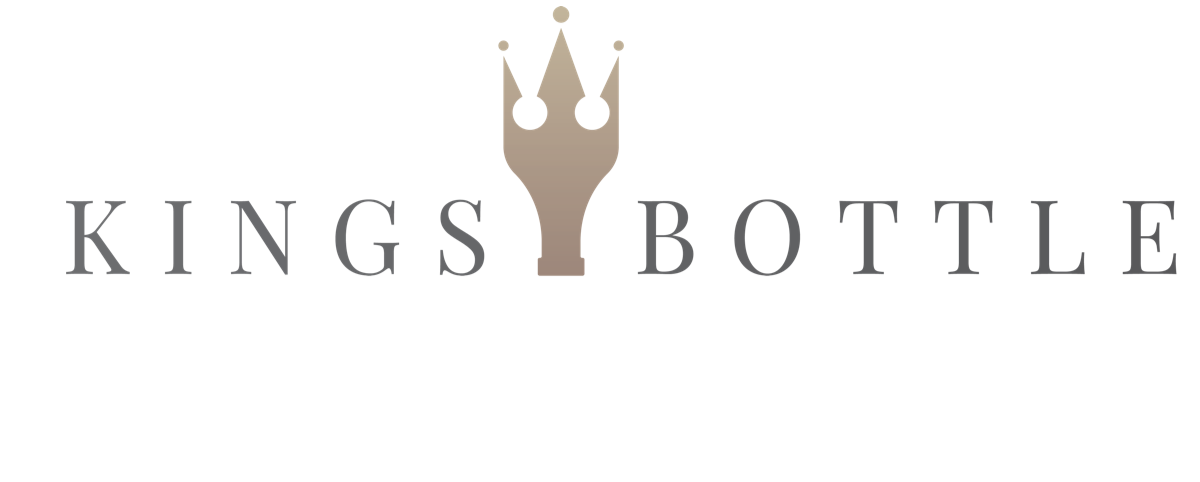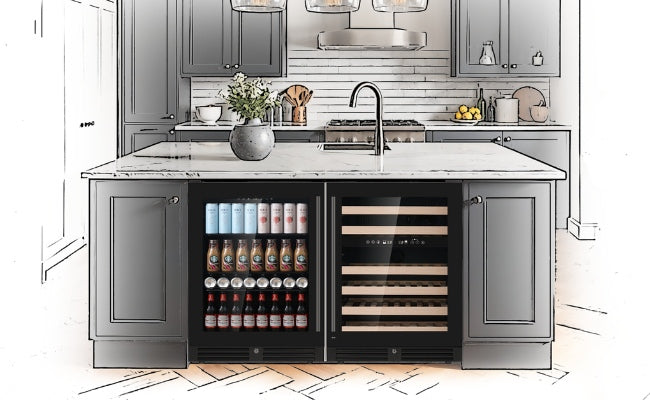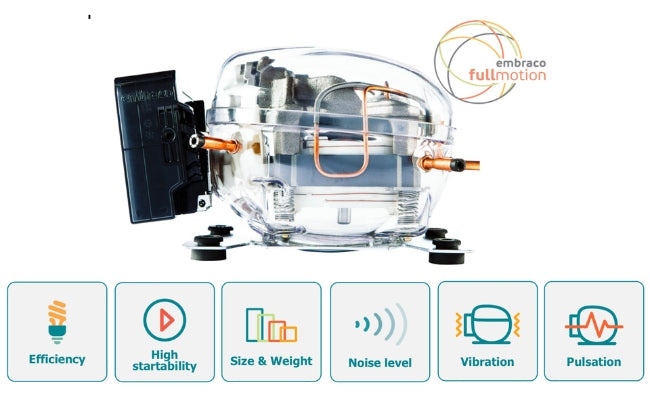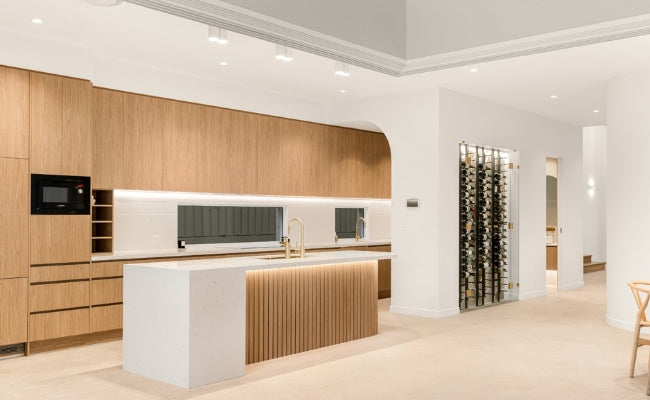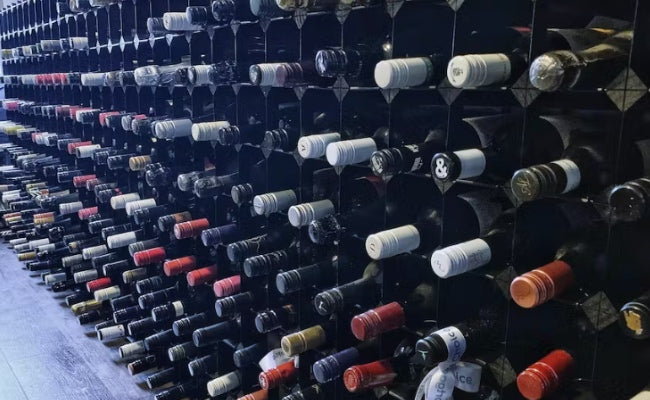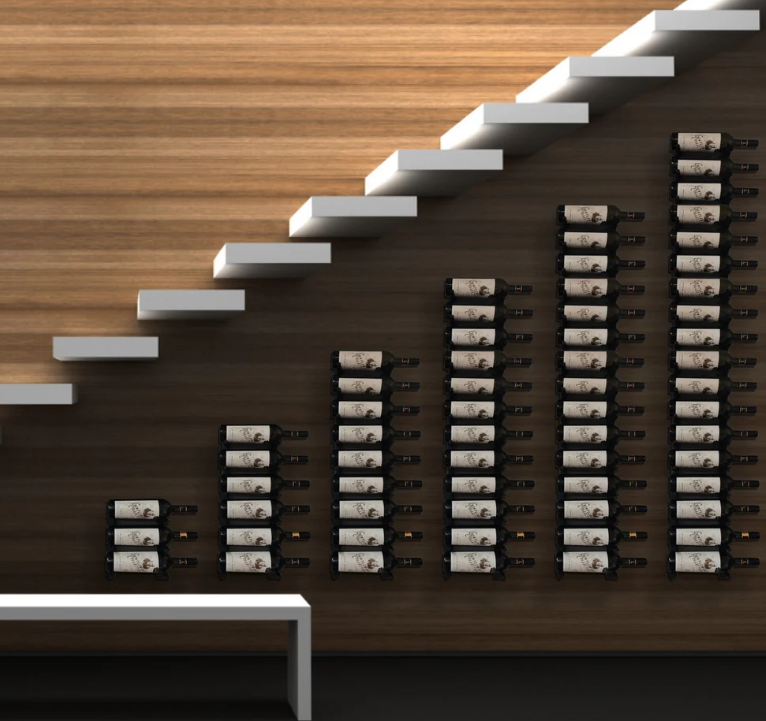
Wine Cooler or Wine Cellar? Uncorking the Perfect Storage Solution
Wine Cooler or Wine Cellar? Uncorking the Perfect Storage Solution
If you're passionate about wine, you already know how critical proper storage is to preserving flavor, aroma, and aging potential. But when it comes to choosing a wine storage solution, you’ll quickly face a common dilemma: Should you buy a wine cooler or build a wine cellar?
Both options are designed to keep your wine at optimal conditions, but they cater to very different needs, spaces, and lifestyles. This comprehensive guide will walk you through every aspect of the wine cooler vs. wine cellar debate, so you can decide which storage solution best fits your collection, budget, and long-term goals.
What Is a Wine Cooler?
A wine cooler, also known as a wine fridge or wine refrigerator, is a compact, freestanding or built-in appliance designed to store wine at a controlled temperature. It typically ranges from 6-bottle countertop models to larger 100+ bottle cabinets.
Wine coolers use thermoelectric or compressor-based cooling to maintain consistent internal temperatures. Many models also offer dual-zone cooling, which allows separate temperature zones for red and white wines.
Key Features:
-
Compact and portable
-
Temperature control (often 45°F–65°F)
-
Built-in or freestanding options
-
Single or dual temperature zones
-
Minimal installation required
What Is a Wine Cellar?
A wine cellar is a dedicated room or enclosed space built specifically to store wine in optimal aging conditions. Cellars may be constructed in basements, closets, or specially designed rooms. They use climate control systems to regulate temperature, humidity, and airflow.
Wine cellars are typically custom-built and can hold hundreds to thousands of bottles. They are ideal for long-term storage and serious collectors who want to age wine gracefully.
Key Features:
-
Large storage capacity
-
Full climate control (temperature and humidity)
-
Customized racking and insulation
-
Long-term aging potential
-
Higher installation costs and space requirements
Temperature and Humidity Control: Precision Matters
Wine Coolers:
Wine coolers are great at controlling temperature, but most do not manage humidity, which is critical for aging wine with natural corks. Too little humidity and the cork dries out; too much and mold becomes a concern.
-
Temperature range: 45°F to 65°F
-
Humidity control: Rare or inconsistent
-
Best for: Short- to mid-term storage and ready-to-drink bottles
Wine Cellars:
Wine cellars excel at both temperature and humidity regulation, usually maintaining temperatures around 55°F and humidity around 60–70%, which are ideal for long-term storage and aging.
-
Temperature range: Typically maintained at 55°F
-
Humidity control: Built-in and highly stable
-
Best for: Long-term aging and large collections
Verdict: For aging wine, cellars win hands down. For casual drinkers and ready-to-serve wine, coolers are more than sufficient.
Storage Capacity and Collection Size
Wine Coolers:
Capacity typically ranges from 6 to 300 bottles, depending on the model. If you enjoy a few bottles a week or are just starting your collection, a wine cooler offers plenty of room.
Pros:
-
Great for casual collectors
-
Available in various sizes
-
Easy to upgrade or add more units
Cons:
-
Limited scalability
-
Difficult to manage very large collections
Wine Cellars:
Custom-built wine cellars can accommodate hundreds to thousands of bottles. Racking can be tailored to fit different bottle sizes (e.g., Bordeaux, Burgundy, Magnum).
Pros:
-
Ideal for serious collectors
-
Long-term investment
-
Can display rare or vintage bottles attractively
Cons:
-
Requires space and planning
-
Not practical for smaller collections
Verdict: If you're storing fewer than 100–150 bottles, a wine cooler is probably all you need. Over 200? A cellar may be more practical in the long run.
Installation and Space Requirements
Wine Coolers:
Coolers are plug-and-play appliances. Installation takes minutes, and many models are designed to slide under counters or sit on a kitchen floor.
Pros:
-
No remodeling required
-
Suitable for apartments and condos
-
Can be moved if you relocate
Cons:
-
Limited design flexibility
-
Can be noisy, especially compressor models
Wine Cellars:
Building a wine cellar is a major project. It involves insulation, vapor barriers, flooring, climate systems, and often permits. You’ll also need space, a basement, spare room, or large closet.
Pros:
-
Fully customizable
-
Adds value to your home
-
Often doubles as a wine-tasting room or lounge
Cons:
-
Requires planning and construction
-
Expensive upfront
-
Permanent
Verdict: Wine coolers are better for renters and small spaces. Wine cellars are best suited for homeowners with available space and long-term wine goals.
Design and Aesthetic Appeal
Wine Coolers:
Wine coolers are sleek, modern, and come in stainless steel, black, or glass door designs. They're ideal for kitchens, bars, or dining rooms.
Pros:
-
Stylish and contemporary
-
Compact and visually integrated
-
See-through doors for display
Cons:
-
Limited customization
-
Less dramatic visual impact
Wine Cellars:
Wine cellars are custom works of art. They can be rustic, modern, or classic, with wood or metal racking, stone walls, and ambient lighting.
Pros:
-
Adds luxury and prestige to a home
-
Can serve as an entertainment space
-
Tailored to your style
Cons:
-
Requires interior design planning
-
Can feel overwhelming for smaller collections
Verdict: For high-end presentation and home value, wine cellars are unbeatable. For clean, minimal design, coolers are perfect.
Wine Aging and Collection Preservation
Wine Coolers:
Best suited for:
-
Wines to be consumed within 1–3 years
-
Maintaining consistent serving temperature
-
Preventing premature aging
Limitations:
-
Not ideal for wines that improve with age
-
May lack light and vibration control
Wine Cellars:
Best suited for:
-
Aging fine wines over 5–20 years
-
Protecting against oxidation and spoilage
-
Long-term investments and rare vintages
Advantages:
-
Proper racking prevents bottle disturbance
-
Advanced climate control reduces risk of cork failure
Verdict: Wine coolers are for drinking; cellars are for aging.
Noise, Vibration, and Light Exposure
Wine Coolers:
Compressor-based coolers may produce noticeable noise and vibration, which can negatively affect long-term wine stability. Thermoelectric models are quieter but less effective in hot environments.
Glass doors can also let in light unless UV-protected.
Wine Cellars:
Custom cellars are insulated and vibration-free. Lights can be dimmed or set to motion sensors to minimize exposure.
Verdict: Cellars are quieter and more stable. Choose coolers carefully if sensitive wines are involved.
Mobility and Flexibility
Wine Coolers:
Easily moved and transported. Ideal for renters or those who move frequently.
Pros:
-
Portable
-
Lightweight
-
Can be upgraded or replaced easily
Wine Cellars:
Permanent and difficult to relocate. However, some modular cellars or wine walls are becoming more mobile-friendly.
Pros:
-
Can be reconfigured but not moved
-
High resale value in luxury homes
Verdict: Wine coolers win on flexibility; cellars win on permanence.
Use Case Scenarios
|
Scenario |
Recommended Option |
|
You live in a small apartment and drink wine weekly |
Wine Cooler |
|
You have a dedicated basement and collect rare vintages |
Wine Cellar |
|
You need dual-zone storage for reds and whites |
Wine Cooler with dual zone |
|
You entertain and host tastings |
Wine Cellar with a tasting area |
|
You want a starter setup to learn wine storage |
Wine Cooler |
|
You’re investing in long-term aging and storage |
Wine Cellar |
Which One Is Right for You?
Choosing between a wine cooler and a wine cellar depends on how you drink, collect, and live.
-
If you're a casual wine enthusiast, a wine cooler offers excellent convenience, cost-efficiency, and function.
-
If you're a serious collector with aging goals and space to spare, a wine cellar offers the best storage conditions and investment potential.
Ultimately, some wine lovers start with a cooler and graduate to a cellar as their passion, and collection, grows.
Start small and scale as your interest evolves, or if you're already dreaming of a climate-controlled haven for your vintages, begin planning that cellar now. Either way, protecting your wine is the first step toward truly enjoying it.
Your wine deserves the right home. Choose wisely, sip slowly, and enjoy the journey.
